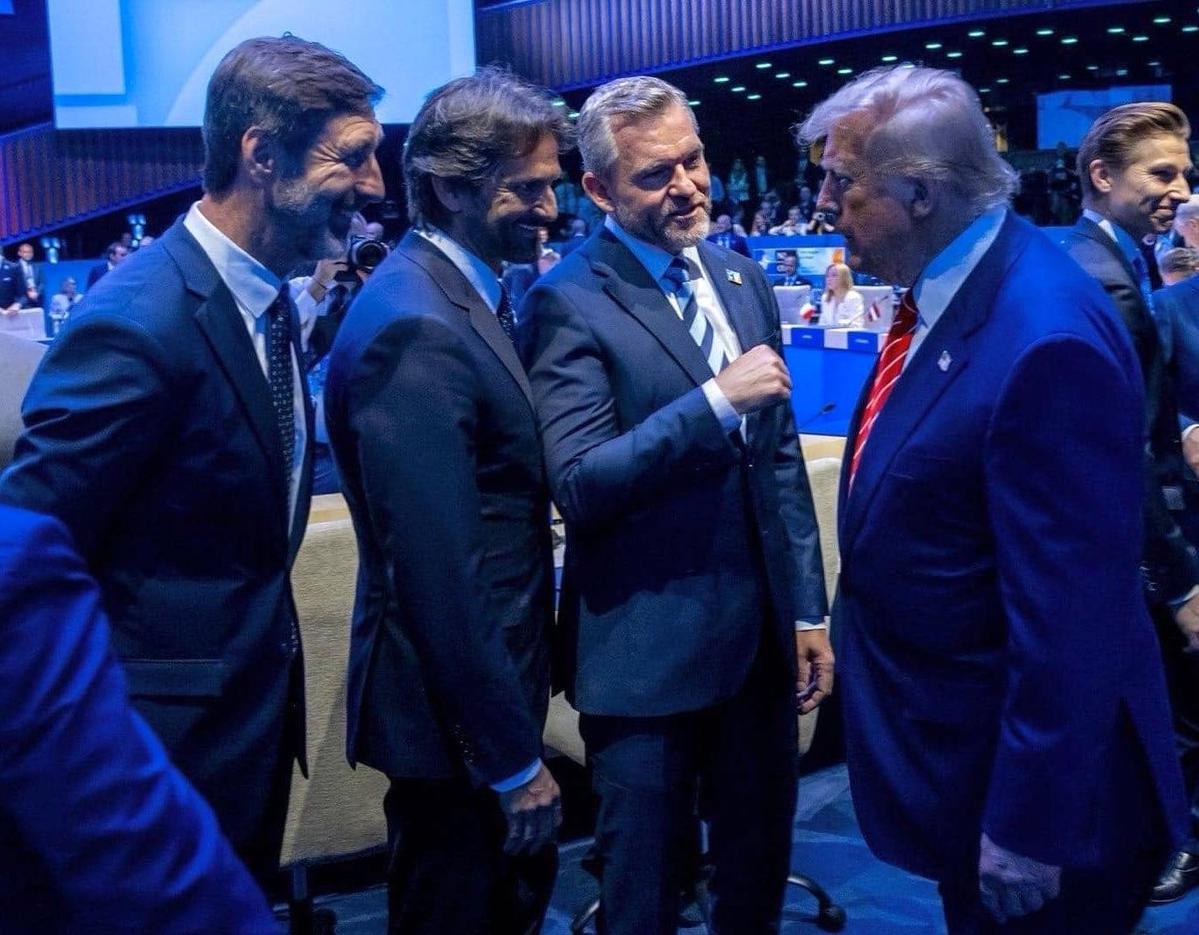Welcome to your weekly commentary and overview of news from Slovakia. President Pellegrini plays along at the NATO summit, PM Fico generates confusion over the 18th package of sanctions against Russia.
As the political season enters the summer lull, Last Week in Slovakia is also taking a summer break. It will be back in your inboxes on August 4. If you haven’t done so yet, you can sign up for Last Week in Slovakia with one click here.
In the meantime, take a look at some of our summer reading tips below. See you soon!
Foreign policy as a distraction for voters back home
Slovakia’s partners, who by now must be used to the schizophrenic foreign policy that this government has pursued under its “four corners of the world” slogan, have seen the country’s very different faces during the last week.
President Peter Pellegrini, who would have you believe that he hardly ever frowns, was deployed to The Hague where his fellow NATO heads of state spent a lot of their time making sure Donald Trump was the happiest camper at their summit. Pellegrini, accompanied by Smer ministers Juraj Blanár (Foreign Affairs) and Robert Kaliňák (Defence), contributed his share of wide smiles and then went on to commit Slovakia to spending a total of 5 percent of its GDP every year on revamping its armed forces and defence capabilities.
Not so fast, Prime Minister Robert Fico, the other face of Slovakia, quickly reacted. Five is a symbolic number and Slovakia is a sovereign country. Hence, Slovakia would not increase its defence spending in 2026 or 2027. But, Fico said on Slovak Radio on Saturday, as a NATO member state it will deliver military capabilities as expected of it by NATO partners.
Earlier, Fico, who is less about smiles and more about anguish, represented Slovakia at the EU summit in Brussels and created a lot of fog around the 18th package of sanctions that the heads of government discussed there.
First, the Slovak government allowed Hungarian Foreign Minister Peter Szijjarto to speak on its behalf in opposition to the new sanctions package. Then, Minister Blanár corrected this position and suggested Slovakia would support the new sanctions. By the time Fico had made it to Brussels, the government had apparently changed its mind yet again, and he insisted that the decision on the new package be postponed. He wants to talk about Russian oil, gas and nuclear fuel first.
Slovakia would feel the impact if the EU quickly cut off Russian natural resources as proposed as part of its RePower policy. Since unanimity is not required in the European Council to pass the policy, and hence Slovakia would not be able to block it, Fico is using the sanctions package to force European partners to offer him compensation for the potential losses he says the country would suffer.
The way he is doing it – blackmail, essentially – betrays the poor quality of his relations with his counterparts in the council. But it shows more than just that.
Keeping the voters warm
